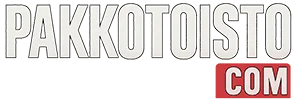Kolesteroli on elintärkeää, mutta sitä tarvitsee ravinnosta 0 g. Keho valmistaa kaiken tarvittavan kolesterolin.
Kovaa treenaavalle on kuitenkin hyötyä ravinnon kolesterolista, koska kova treeni itsessään kuluttaa kolesterolia.
Acute training impact on cholesterol level
If moderate weight training does not seem to affect cholesterol levels, a traumatic workout will most definitely induce an acute reduction of blood cholesterol level within 2 hours (1). This shortage of cholesterol can last up to several days during the recovery phase. This lowering effect is due to an accelerated uptake of cholesterol by skeletal muscle. It reveals our fibers need this extra cholesterol in order to recover and grow.
Considering the positive impact of cholesterol on muscle growth (see below), it might be a good idea to include cholesterol-rich foods such as whole eggs in you first real post-workout meal. This strategy would make sure your muscles obtain all the cholesterol they need, preventing any potential shortage which would postpone recovery.
Dietary cholesterol intake on muscle growth
Riechman has studied the impact of cholesterol on (resistance) training-induced hypertrophy (2). This research has been conducted on elderly men and women, yet its findings seem relevant to younger subjects:
For 12 week, those people weight trained. When their daily cholesterol intake was inferior to 3.5 mg per kg of lean mass, no hypertrophy was detected. Strength only increased 36%. When their cholesterol consumption was above 5.7 mg/kg, muscle mass increased an average of 2.1 kg. Heavy cholesterol consumers experienced a strength increase of 86%.
Muscle growth and strength gains are closely related to dietary cholesterol intake. Considering a large egg contains around 200 mg of cholesterol, a 220 lbs bodybuilder would need at least 3 whole eggs a day.
Blood cholesterol level on muscle growth
Subjects with serum cholesterol lower than 178 mg/dl did not experienced much growth (+300 g of lean mass). When serum cholesterol was above 238 mg/dl, lean mass increased an average of 2.3 kg. The correlation between serum cholesterol and strength gains is statistically weaker. Subjects with low cholesterol level experienced an increase of 37% Vs 70% for subjects with high levels.
Muscle growth is positively correlated with blood cholesterol level.
Will cholesterol-related muscle catabolism favor growth?
I am not surprised that catabolic drugs facilitate muscle gains in trained subjects. I have already explained this paradox in a previously published clenbuterol article. Even cholesterol seems to enhance catabolism. Following an acute eccentric workout, soreness as well as strength loss are higher in young men consuming a whole egg diet rather than a low cholesterol diet (1). In response to this exacerbated catabolism, muscle strengthening is much more robust with the whole egg than with the white egg diet (1). This greater anabolic response explains the results observed on elderly. It also suggests that conclusions reached in older subjects apply to young men as well.
It may be important to note that if training-induced catabolism is enhanced by cholesterol lowering drugs, they also protect muscle cells from apoptosis (death) (3). This protective effect may facilitate an additional growth response.
References
1. Riechman SE. Dietary Cholesterol Alters Recovery from Eccentric Muscle Damage in Humans. Medicine & Science in Sports & Exercise: Volume 38(5) Supplement May 2006 p S386
2. Riechman SE. Dietary and blood cholesterol and statins increase hypertrophy with resistance training. FASEB J. 2005 19 A1571
3. Urso ML. Changes in ubiquitin proteasome pathway gene expression in skeletal muscle with exercise and statins. Arterioscler Thromb Vasc Biol. 2005 Dec;25(12):2441-4.


 .
.
